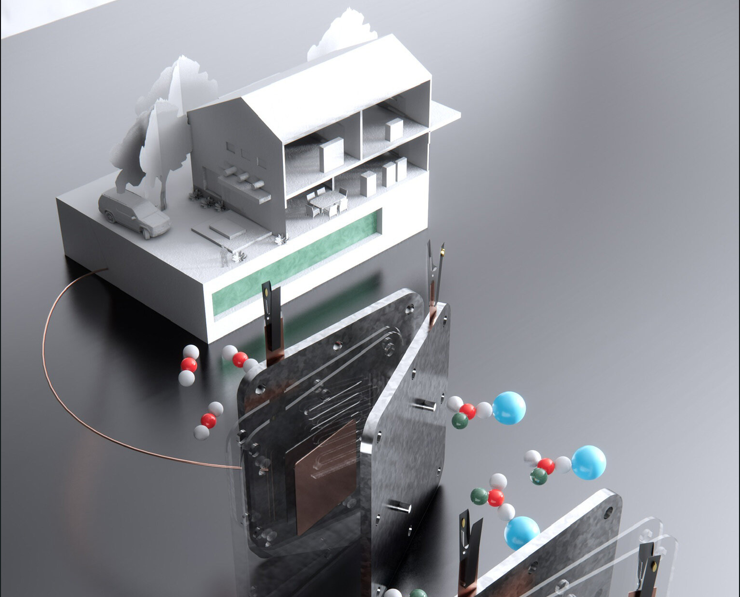Converting carbon dioxide into useful ingredients is one of the most energy-efficient solutions to reduce the greenhouse effect and achieve carbon neutrality. However, most of the earlier efforts have problems, such as being inefficient or resulting in toxic, flammable fuels.
To make carbon conversion more practical, researchers at MIT and Harvard University have devised a novel approach to turn carbon dioxide into formate efficiently. The work is backed by the U.S. Department of Energy Office of Science.
The process involves first capturing the carbon dioxide in an alkaline solution. Then, the carbon dioxide is converted into formate powder using an electrochemical process. The formate powder can then be used to generate electricity.
The researchers have conducted small-scale laboratory experiments. However, they expect to scale the process to produce enough formate powder to provide emissions-free heat and power to individual homes and businesses.
Compared to other methods, the new approach has eliminated the thermal decomposition stage, where the material received after the chemical capture is heated to drive off the carbon dioxide and convert it to a fuel feedstock. MIT Professor Ju Li said that that stage is inefficient, typically converting less than 20% of the gaseous carbon dioxide into the desired product.
Researchers can achieve much higher efficiencies with this new process and thus produce a more valuable product. Moreover, the formate powder can be stored for years or even decades without losing its potency.
In addition to developing the new process, researchers also made a fuel cell optimized explicitly for the use of formate fuel. The fuel cell can generate electricity from the formate fuel with an efficiency comparable to that of hydrogen fuel cells.
Researchers believe that the new process could be used to develop various applications, from home-sized units to large-scale industrial uses and grid-scale storage systems.
The results were first published on the Massachusetts Institute of Technology’s website.







